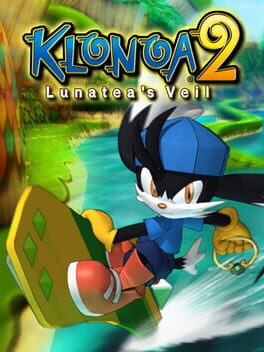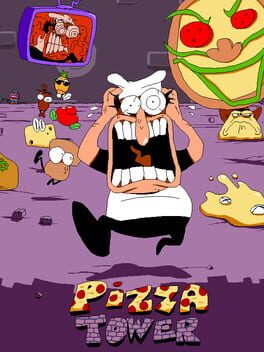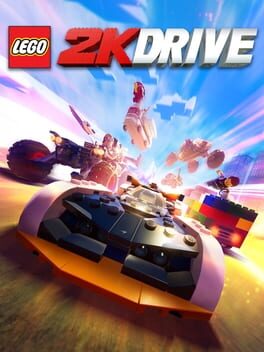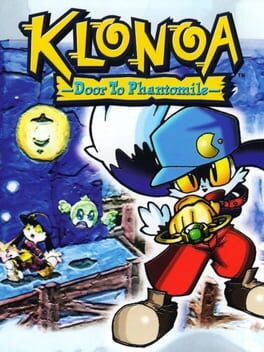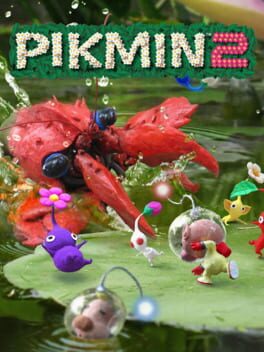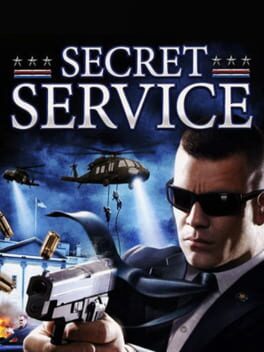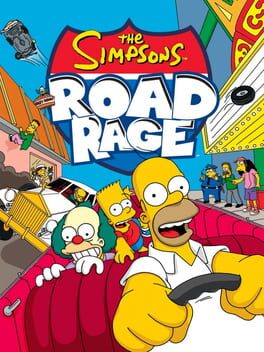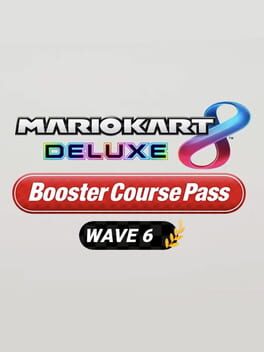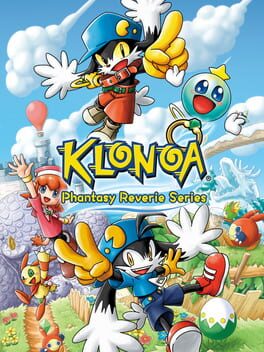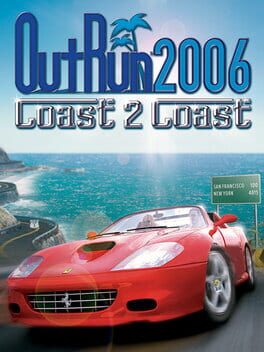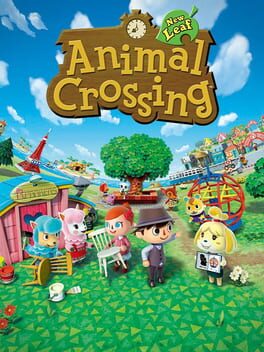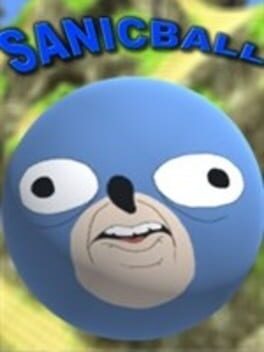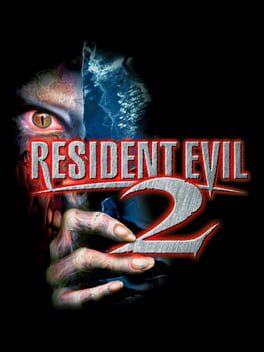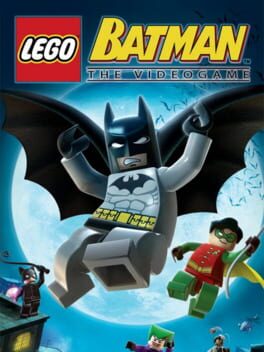smaench
This review contains spoilers
When I was 9 years old, I moved across states, with my new home 800 miles away. Of course, as a child I didn't want to, and saying goodbye was a task I found too heavy for my young heart. Ultimately, I decided to just… not say my goodbyes. I had a lot of close friends as a kid, and though they knew I was leaving, naïve as I was, I did my best to minimize my goodbyes. Prior to my leaving we had all come up with ways to stay in touch, whether that be email or phone numbers; I even had one friend give me their fax number. When I left without as much as a word to most of them and I found myself in the home I still reside in to this day, my torn, immature self decided to leave ties severed. I never contacted any of my friends. I received emails and home phone calls abound, and yes, even a faxed letter once. It felt nothing more to me than a burden to exist in their memories, that our times together should end at the loss of the here and now. This had unintended repercussions on my mental health and I feel as though my move ultimately split my life into two arcs. I was a completely different person as a child in my hometown. My severance became a split in my mind, and almost overnight I had lost my extrovertedness and sociable child self. I became awkward, introverted, unable to fit in, and in no doubt contributed to the mental health and self image issues I coexist with today at 24. To this day I still feel as though I am living in my second self, and my first one lies in the same forgotten realm with the memories of my childhood friends.
I would say it wasn't even until my late teens, probably pushing past my early 20s that I started to really mold myself back together. Building connections on social media gradually grew me onto the importance of holding on to your connections. Nowadays I am adamant on it and I do my absolute best to maintain the healthy links I have with my friends and peers today. I've found that there is no value in letting go the way I did long ago.
Klonoa is a tragic character. A called-upon savior, fated to always be a stranger in other people's worlds, to always save the day, and doomed to always leave behind the friends he makes. In his first outing, he attempts to reject this doom. He was young and naïve, but there was no resolution for him at the end of his time in Phantomile. He must always return in the end.
And later, thus begins his mission in Lunatea. Time has passed; he is noticeably older, and his demeanor, still loudly optimistic and unwavering, is noticeably more reserved. His attitude towards his companions, this time a young aspiring Priestess Lolo and her puppet companion Popka, shares none of his dynamic with his first companion from times past. He makes no long-term promises, he doesn't speak of his life or muse over his future like he did as a child. He is now always aware of his fate at the end (and so are you, the player) and has since adjusted his solicitousness. It's noticeable that he's had a number of off-screen adventures between the years. Klonoa isn't saving the world he knows and loves like he assumed back in Phantomile. In the end, he is always fated to say goodbye, and onto the next one. He’s resigned to his role as an eternal passerby.
The day is saved, the Veil of Lunatea has been lifted, and the inevitable runs its course. His demeanor here is one of full resignation, but it isn’t until his companion sheds tears and holds him tight in refusal, a complete reversal of that dichotomy from when we last saw him leave Phantomile, that the true extent of his maturity is spoken:
“I believe that if you don’t forget the sadness of this moment, we’ll always be together.”
To rescind the notion of leaving things as memory, to disregard that which ends purely because they end; that was the mistake I made as a child, that it isn’t enough to just cry out the losses. That which spells tears must also be overcome. To not heal from the powers that hurt you was Lunatea’s Veil. Sorrow cannot just exist as something to forget or beat down, it must ring in harmony with Indecision, Discord, Joy, Tranquility.
This wasn't just a revelation to be made at the end of this story, it was reminded along the way. On the final leg of the journey, as Klonoa traversed the empty, ruined kingdom of Hyuponia, he's followed by a harrowing, cacophonous symphony of his past. It would be wrong to assume that even though Klonoa moreorless accepts his role as a Dream Traveller that he has also healed from his hurt. Sorrow will always follow. It will taunt you. It will make you cry. The hurt must be risen above. The greatest Sorrow of all is the false acceptance that the loss of what you love has to be forgotten.
I would say it wasn't even until my late teens, probably pushing past my early 20s that I started to really mold myself back together. Building connections on social media gradually grew me onto the importance of holding on to your connections. Nowadays I am adamant on it and I do my absolute best to maintain the healthy links I have with my friends and peers today. I've found that there is no value in letting go the way I did long ago.
Klonoa is a tragic character. A called-upon savior, fated to always be a stranger in other people's worlds, to always save the day, and doomed to always leave behind the friends he makes. In his first outing, he attempts to reject this doom. He was young and naïve, but there was no resolution for him at the end of his time in Phantomile. He must always return in the end.
And later, thus begins his mission in Lunatea. Time has passed; he is noticeably older, and his demeanor, still loudly optimistic and unwavering, is noticeably more reserved. His attitude towards his companions, this time a young aspiring Priestess Lolo and her puppet companion Popka, shares none of his dynamic with his first companion from times past. He makes no long-term promises, he doesn't speak of his life or muse over his future like he did as a child. He is now always aware of his fate at the end (and so are you, the player) and has since adjusted his solicitousness. It's noticeable that he's had a number of off-screen adventures between the years. Klonoa isn't saving the world he knows and loves like he assumed back in Phantomile. In the end, he is always fated to say goodbye, and onto the next one. He’s resigned to his role as an eternal passerby.
The day is saved, the Veil of Lunatea has been lifted, and the inevitable runs its course. His demeanor here is one of full resignation, but it isn’t until his companion sheds tears and holds him tight in refusal, a complete reversal of that dichotomy from when we last saw him leave Phantomile, that the true extent of his maturity is spoken:
“I believe that if you don’t forget the sadness of this moment, we’ll always be together.”
To rescind the notion of leaving things as memory, to disregard that which ends purely because they end; that was the mistake I made as a child, that it isn’t enough to just cry out the losses. That which spells tears must also be overcome. To not heal from the powers that hurt you was Lunatea’s Veil. Sorrow cannot just exist as something to forget or beat down, it must ring in harmony with Indecision, Discord, Joy, Tranquility.
This wasn't just a revelation to be made at the end of this story, it was reminded along the way. On the final leg of the journey, as Klonoa traversed the empty, ruined kingdom of Hyuponia, he's followed by a harrowing, cacophonous symphony of his past. It would be wrong to assume that even though Klonoa moreorless accepts his role as a Dream Traveller that he has also healed from his hurt. Sorrow will always follow. It will taunt you. It will make you cry. The hurt must be risen above. The greatest Sorrow of all is the false acceptance that the loss of what you love has to be forgotten.
2023
It's been so long since any game, indie or otherwise, has worn its heart on its sleeve the way Pizza Tower does. Over 5 years of time in the oven and it shows in every screen, every frame, every button press, every bite. Pizza Tower has more than deserved its right to stand amongst the greatest culinary triumphs of the single-chef indie scene alongside Cave Story, Stardew Valley, Hypnospace Outlaw, etc, joining the ranks of my personal 5-star favorite dishes.
There's something truly special about the way Pizza Tower sprinkles its influences to spice up its unique blend of score attack. It's not just the Wario Land heritage, its the way Tour de Pizza has taken its recipe and made a pie so perfectly seasoned and crisped, down to its crust. It's more than just a familiar flavor on a new dish. It's the ultra responsive and gooey momentum that makes combo racking so addictive. It's the undeniably charming SatAM flavor of every frame of animation that makes its slapstick marinate so effortlessly with its gameplay. It's the ear candy soundtrack so infectious and diverse, taking pieces from different cultural dishes like chiptune, new jack swing, tropical house, disco; all appreciated, never appropriated. Every bite culminating in a finale so unexpected, spicy, and cathartic; one of the most memorable last courses I've ever eaten and unlike anything I've ever tasted. Even after a week I still cannot stop thinking about it.
Pizza Tower was a daunting dish for such a small team of chefs to cook, and was something I was watching from outside the oven with such interest that I was genuinely worried it might come out overcooked, or maybe not even come out at all. I'm so glad to say this was not the case.
Bellísimo.
There's something truly special about the way Pizza Tower sprinkles its influences to spice up its unique blend of score attack. It's not just the Wario Land heritage, its the way Tour de Pizza has taken its recipe and made a pie so perfectly seasoned and crisped, down to its crust. It's more than just a familiar flavor on a new dish. It's the ultra responsive and gooey momentum that makes combo racking so addictive. It's the undeniably charming SatAM flavor of every frame of animation that makes its slapstick marinate so effortlessly with its gameplay. It's the ear candy soundtrack so infectious and diverse, taking pieces from different cultural dishes like chiptune, new jack swing, tropical house, disco; all appreciated, never appropriated. Every bite culminating in a finale so unexpected, spicy, and cathartic; one of the most memorable last courses I've ever eaten and unlike anything I've ever tasted. Even after a week I still cannot stop thinking about it.
Pizza Tower was a daunting dish for such a small team of chefs to cook, and was something I was watching from outside the oven with such interest that I was genuinely worried it might come out overcooked, or maybe not even come out at all. I'm so glad to say this was not the case.
Bellísimo.
2023
I don't feel it's controversial to say this - we are living in the worst era of video games in the medium’s history. In this post-creative type age, AAA games are designed by corporate committees, the bleeding hearts and artists chained to their whim. Here's $10 billion dollars, make a game. Your livelihoods are threatened if it falls beneath our expectations, except not really because we're going to lay off 60% of your team anyway after launch. We want a remake of an old classic of yours now that we've bought the rights from your old publisher - we'll give you no more than five years to finish regurgitating the same game you made in a fifth of the time two decades ago but your game will still come out unpolished, unappreciated, your bloody hands and dried tear ducts for naught. We're your new publishers, we're looking for a change of pace from your streak of critically acclaimed titles - we feel a live service game will be more beneficial to us. We’ll be looking into layoffs and a potential merger if the Metacritic score doesn’t meet our expectations. It cannot be understated or made any clearer - the bubble is not about to burst; the bubble is bursting.
It goes without saying, and there is no exception in this day and age, that if a AAA game is good, it is good in spite of any grievous sins it commits. LEGO 2K Drive is a fun arcade racer. LEGO 2K Drive also costs $60 USD, has five consecutive battle passes each locked behind their own purchase, and in-game currency is drip-fed at a consistency I’ve seen more generous in Korean F2P mobile games.
What is the point of sending obviously hardworking, dedicated game developers to this critical death? Why must creative teams have to be chained to the ankles of executives uninterested in art form - merging, dissolving, firing developers at will off the weights of failures not their own? 2K Drive is fun. Undoubtedly. The divide between the joy of its loving arcadey gameplay and creative spirit to the horror of its fleshy, bleeding abscess of finance-leeching rotting flesh is too palpable. Though leeching it does, because after some time the imbalance grows too great.
User-made custom car creations are downloadable in-game in its current state, but I distinctly remember why publisher 2K had to announce this wasn’t planned to be before release, much to the chagrin of, well, everyone. What’s the point in creating if you can’t share with the world? The answer became obvious almost immediately when looking within. Why do I get 10 Brickbux for getting a gold medal in a challenge, and 50 when winning a race, when a fucking cosmetic car costs 10,000? Oh, that’s an easy answer, because you’d have no reason to be pressed to pay real money to boost your in-game currency if you could just download the cool user-created stuff online. This isn’t counting the five consecutive battle passes. This game also costs $60.
2K Drive’s progression is, by design, torturous, but its gameplay is at a clear odds from it. Cars handle well, its challenge missions engaging and varied, its races variably frantic and exciting, its story a cute and charming melting parody pot of racing story tropes. Despite finding myself growing more and more averse to the tired trend of open world games, this is where the divide is drawn with mile-wide crayon - it’s fun. The plainness of its formula is upended by the sheer joy of absurdity it relishes in - barreling through structures, rocketing through explosions of thousands of LEGO pieces both structural and minifigure (yes, you can just mow down pedestrians in this, it’s hilarious), pun-riddled dialogue both confident as it is surprisingly more endearing than annoying (something I think the LEGO games have always been good at). Unfortunately, its wholehearted spirit is progressively crushed the more time you invest, because you're expected to invest as much money as you do your own time into 2K Drive. Progression stagnates, incentives are diminished, and the only joy you can wring out after you feel closed off completely is just enjoying the online races yourself, outside of the story mode. Oh wait, no you can't, because the online also barely works.
You don’t need to stretch your neck out very far to see the state of the way multimedia is being curated today, and you don’t need a third eye and an all-encompassing andromedatic galaxy brain to see how much art today is dictated by committee - this is just the most obvious its ever looked. Underneath its Financial Terror Shield is a game that’s struggling to exist - an honest core, crying by itself, to just be a game. We’re undoubtedly worse off now, but this game wouldn’t even be much different 10 years ago. Its future also feels all too certain, being under the reins of many alike a publisher more eager to kill off a game’s entire service before they’ll let it live indefinitely without profit. It’s not just developers who’ve been demoralized and dehumanized throughout this process - you are also no longer a fan. You are a demographic, a consumer, a target market, complicit either way you look at it. If you need any further proof of the post-post times we live in, 7 companies have laid off their employees in the week I spent writing this on and off, and it’s only a matter of time before every brick in this failing structure is put back in its box. The most radical action a consumer can perform today is to download a user-made LEGO rendition of the Flintstone's Flintmobile off the content shop and not spend their actual Brickbux on the corporate-mandated seasonal coupes, and hope that when the last brick falls, we can all put a hand towards rebuilding.
It goes without saying, and there is no exception in this day and age, that if a AAA game is good, it is good in spite of any grievous sins it commits. LEGO 2K Drive is a fun arcade racer. LEGO 2K Drive also costs $60 USD, has five consecutive battle passes each locked behind their own purchase, and in-game currency is drip-fed at a consistency I’ve seen more generous in Korean F2P mobile games.
What is the point of sending obviously hardworking, dedicated game developers to this critical death? Why must creative teams have to be chained to the ankles of executives uninterested in art form - merging, dissolving, firing developers at will off the weights of failures not their own? 2K Drive is fun. Undoubtedly. The divide between the joy of its loving arcadey gameplay and creative spirit to the horror of its fleshy, bleeding abscess of finance-leeching rotting flesh is too palpable. Though leeching it does, because after some time the imbalance grows too great.
User-made custom car creations are downloadable in-game in its current state, but I distinctly remember why publisher 2K had to announce this wasn’t planned to be before release, much to the chagrin of, well, everyone. What’s the point in creating if you can’t share with the world? The answer became obvious almost immediately when looking within. Why do I get 10 Brickbux for getting a gold medal in a challenge, and 50 when winning a race, when a fucking cosmetic car costs 10,000? Oh, that’s an easy answer, because you’d have no reason to be pressed to pay real money to boost your in-game currency if you could just download the cool user-created stuff online. This isn’t counting the five consecutive battle passes. This game also costs $60.
2K Drive’s progression is, by design, torturous, but its gameplay is at a clear odds from it. Cars handle well, its challenge missions engaging and varied, its races variably frantic and exciting, its story a cute and charming melting parody pot of racing story tropes. Despite finding myself growing more and more averse to the tired trend of open world games, this is where the divide is drawn with mile-wide crayon - it’s fun. The plainness of its formula is upended by the sheer joy of absurdity it relishes in - barreling through structures, rocketing through explosions of thousands of LEGO pieces both structural and minifigure (yes, you can just mow down pedestrians in this, it’s hilarious), pun-riddled dialogue both confident as it is surprisingly more endearing than annoying (something I think the LEGO games have always been good at). Unfortunately, its wholehearted spirit is progressively crushed the more time you invest, because you're expected to invest as much money as you do your own time into 2K Drive. Progression stagnates, incentives are diminished, and the only joy you can wring out after you feel closed off completely is just enjoying the online races yourself, outside of the story mode. Oh wait, no you can't, because the online also barely works.
You don’t need to stretch your neck out very far to see the state of the way multimedia is being curated today, and you don’t need a third eye and an all-encompassing andromedatic galaxy brain to see how much art today is dictated by committee - this is just the most obvious its ever looked. Underneath its Financial Terror Shield is a game that’s struggling to exist - an honest core, crying by itself, to just be a game. We’re undoubtedly worse off now, but this game wouldn’t even be much different 10 years ago. Its future also feels all too certain, being under the reins of many alike a publisher more eager to kill off a game’s entire service before they’ll let it live indefinitely without profit. It’s not just developers who’ve been demoralized and dehumanized throughout this process - you are also no longer a fan. You are a demographic, a consumer, a target market, complicit either way you look at it. If you need any further proof of the post-post times we live in, 7 companies have laid off their employees in the week I spent writing this on and off, and it’s only a matter of time before every brick in this failing structure is put back in its box. The most radical action a consumer can perform today is to download a user-made LEGO rendition of the Flintstone's Flintmobile off the content shop and not spend their actual Brickbux on the corporate-mandated seasonal coupes, and hope that when the last brick falls, we can all put a hand towards rebuilding.
2004
Fuck you Nintendo for releasing Pikmin 1+2 while I was in the middle of playing this emulated.
I imagine the biggest internal conversation regarding sequel development is in regards to changes. A sequel is always the best way to really assess what makes an original title work and what doesn't. Pikmin 1 had the benefit of being such a richly produced game I found it hard to imagine what could be done to improve on it while playing it for the first time a while ago.
Weird feeling to find out that Nintendo's answer, in 2004, seemed to be "not much."
Pikmin 2 really wanted to flip the core of Pikmin on its head, by going from a time-limited scramble for ship parts to a slower, methodical treasure hunt. Part of Pikmin's appeal, to me, will always be its ability to pressure the player. Controversial as it was, Pikmin's entire campaign was time-limited for 30 in-game days, each day about 13 minutes in length. So, in short, each Pikmin playthrough will last, at most, about six and a half hours, give or take. To stress it out, the player is put under two constant time limits, that for the day, and that for the 30 total days. On my first playthrough I missed the deadline at the last minute by having the last two crucial parts in separate areas on the last day. It was frustrating, but I still enjoyed Pikmin.
I was aware of how Pikmin 2 removed the 30-day time limit but I also wasn't aware of what else it did to flip up the core game loop.
i.e. fucking dungeons. A lot of this review is gonna be about the caves/dungeons, as they’re the new center of the gameplay in this sequel.
Pikmin 2 decides that, while time ticks away during the day above ground, four different entrances in each area can be found that lead to a unique underground cave. The now-overworld clock freezes as you're now dungeon crawling for the bulk of the game time. Within the first hour, the main essence of Pikmin's design philosophy is contradicted. Pikmin 1's yin-yang of problem solving and time management is disregarded as Pikmin 2 concerns itself more with scanning featureless floors of repeating geometry, relegating the Pikmin to color-coded keys instead of diverse pieces of a toolkit. Red Pikmin are immune to fire and can remove fire traps, Yellow Pikmin are immune to electricity and can remove electric traps, Blue Pikmin can swim and are mostly useless in caves. Every floor, no matter the layout or cave itself, plays out exactly the same: clear out the enemies and traps, bring the treasures back to the landing spot, proceed down. You do this shit for over 100 floors, and all they do is get bigger, more plentiful, and take longer to complete as the game progresses.
Call me jaded or reluctant to change, but I don't find the constant lock-and-key (as Pangburn beautifully put it) gameloop an effective progression from what I previously experienced as such a greatly imaginative strategic puzzle blend.
I think what can be said most about the dungeons is how pointless they are for something that takes center stage. As I stated, pausing the daily time limit for extended dungeon crawling segments completely eviscerates the need for the time limit at all, especially with how barren the above ground sections are now. What used to be the main environment of Pikmin 1, sprawling multi-pathed worlds and labyrinths with puzzles to solve and routes to optimize at every corner have turned into circularly linear gates to these cave entrances with not much to see or do when outside of them. There's some stray treasure out there, but with how little time you spend above ground the time limit may as well not be there. I repaid my debt in 25 days over 10 hours of playtime, twice the time I spent in 30 days within Pikmin 1.
I could write much more, about this game's psychopathic sense of difficulty in the late game, over-reliance on randomized hazards to artificiate difficulty (those fucking bombs that drop from the cave ceilings), the unsubtle requirement to reset the game every time you fuck up on a shitty floor layout to get a new one (as it asks you to save between floors as a loud and obnoxious wink), the timepadding of having to farm the new White and Purple Pikmin, etcetera etcetera. You think all those clips being posted on Twitter of everyone's Pikmin army being completely eviscerated by random hazards all being from Pikmin 2 specifically is just a coincidence? It sure as hell isn't. Sometimes I think Pikmin 2 is a work of pure evil.
Despite all its changes, with all of Pikmin 2's misguided and unthoughtful reimagining, the most subversive thing of all is that I don't flat out hate it. It can be trudging, monotonous, boring, but never completely joyless. It's still a wonder of world and sound design, and there are moments above ground that spark the same light as its predecessor. I think "misguided" really is the key descriptor for Pikmin 2, as the core of a good game is still there and felt. Though I audibly groaned at the return of caves in Pikmin 4, with an explosion of countless indie roguelikes in recent years a-la Enter the Gungeon and Spelunky with their innovative dungeon crawling systems in the name of accessibility and quality of life, I think there's no drought in inspiration Nintendo could take from. Pikmin 2 could be elevated as a footnote in Pikmin 4's potentially successful winning take on Pikmin-meets-dungeon-crawling, but for now, it's a clumsy effort to shake up a successful formula that didn't need to be changed.
I imagine the biggest internal conversation regarding sequel development is in regards to changes. A sequel is always the best way to really assess what makes an original title work and what doesn't. Pikmin 1 had the benefit of being such a richly produced game I found it hard to imagine what could be done to improve on it while playing it for the first time a while ago.
Weird feeling to find out that Nintendo's answer, in 2004, seemed to be "not much."
Pikmin 2 really wanted to flip the core of Pikmin on its head, by going from a time-limited scramble for ship parts to a slower, methodical treasure hunt. Part of Pikmin's appeal, to me, will always be its ability to pressure the player. Controversial as it was, Pikmin's entire campaign was time-limited for 30 in-game days, each day about 13 minutes in length. So, in short, each Pikmin playthrough will last, at most, about six and a half hours, give or take. To stress it out, the player is put under two constant time limits, that for the day, and that for the 30 total days. On my first playthrough I missed the deadline at the last minute by having the last two crucial parts in separate areas on the last day. It was frustrating, but I still enjoyed Pikmin.
I was aware of how Pikmin 2 removed the 30-day time limit but I also wasn't aware of what else it did to flip up the core game loop.
i.e. fucking dungeons. A lot of this review is gonna be about the caves/dungeons, as they’re the new center of the gameplay in this sequel.
Pikmin 2 decides that, while time ticks away during the day above ground, four different entrances in each area can be found that lead to a unique underground cave. The now-overworld clock freezes as you're now dungeon crawling for the bulk of the game time. Within the first hour, the main essence of Pikmin's design philosophy is contradicted. Pikmin 1's yin-yang of problem solving and time management is disregarded as Pikmin 2 concerns itself more with scanning featureless floors of repeating geometry, relegating the Pikmin to color-coded keys instead of diverse pieces of a toolkit. Red Pikmin are immune to fire and can remove fire traps, Yellow Pikmin are immune to electricity and can remove electric traps, Blue Pikmin can swim and are mostly useless in caves. Every floor, no matter the layout or cave itself, plays out exactly the same: clear out the enemies and traps, bring the treasures back to the landing spot, proceed down. You do this shit for over 100 floors, and all they do is get bigger, more plentiful, and take longer to complete as the game progresses.
Call me jaded or reluctant to change, but I don't find the constant lock-and-key (as Pangburn beautifully put it) gameloop an effective progression from what I previously experienced as such a greatly imaginative strategic puzzle blend.
I think what can be said most about the dungeons is how pointless they are for something that takes center stage. As I stated, pausing the daily time limit for extended dungeon crawling segments completely eviscerates the need for the time limit at all, especially with how barren the above ground sections are now. What used to be the main environment of Pikmin 1, sprawling multi-pathed worlds and labyrinths with puzzles to solve and routes to optimize at every corner have turned into circularly linear gates to these cave entrances with not much to see or do when outside of them. There's some stray treasure out there, but with how little time you spend above ground the time limit may as well not be there. I repaid my debt in 25 days over 10 hours of playtime, twice the time I spent in 30 days within Pikmin 1.
I could write much more, about this game's psychopathic sense of difficulty in the late game, over-reliance on randomized hazards to artificiate difficulty (those fucking bombs that drop from the cave ceilings), the unsubtle requirement to reset the game every time you fuck up on a shitty floor layout to get a new one (as it asks you to save between floors as a loud and obnoxious wink), the timepadding of having to farm the new White and Purple Pikmin, etcetera etcetera. You think all those clips being posted on Twitter of everyone's Pikmin army being completely eviscerated by random hazards all being from Pikmin 2 specifically is just a coincidence? It sure as hell isn't. Sometimes I think Pikmin 2 is a work of pure evil.
Despite all its changes, with all of Pikmin 2's misguided and unthoughtful reimagining, the most subversive thing of all is that I don't flat out hate it. It can be trudging, monotonous, boring, but never completely joyless. It's still a wonder of world and sound design, and there are moments above ground that spark the same light as its predecessor. I think "misguided" really is the key descriptor for Pikmin 2, as the core of a good game is still there and felt. Though I audibly groaned at the return of caves in Pikmin 4, with an explosion of countless indie roguelikes in recent years a-la Enter the Gungeon and Spelunky with their innovative dungeon crawling systems in the name of accessibility and quality of life, I think there's no drought in inspiration Nintendo could take from. Pikmin 2 could be elevated as a footnote in Pikmin 4's potentially successful winning take on Pikmin-meets-dungeon-crawling, but for now, it's a clumsy effort to shake up a successful formula that didn't need to be changed.
1995
A juggernaut of groundbreaking ideas encapsulated into distilled magic. Yes, Chrono Trigger is always referenced as the end-all-be-all masterpiece JRPG, and as someone who prefers to view products before my time as products of their time, it's almost too easy to say the mass opinion is correct in its case.
Interpolating Chrono Trigger's multilayered time-travelling narrative masterstrokes is a combat system that combines the best of Final Fantasy's synonymous ATB system and Dragon Quest's malleable magic formatting. In addition to removing separate battle scenes entirely in favor of battles playing out in the top-down overworlds is Chrono Trigger's mechanical coup de grâce, a "Tech" system of combining magic abilities between party members. Planning and unleashing Tech gambits that vary in not only elemental effectiveness but within its positions adds an element of actual strategy, one I got so delighted with tinkering and abusing I don't think I ever pressed the standard Attack button during the entire second and third acts. What compliments this system best of all is Chrono Trigger's keen sense of enemy variety, where being constantly faced with groups of enemies of varying resistances and weaknesses, usually simultaneously, only asks of you to think harder about your battle strategy. As someone who loves JRPGs but tends to fry their brain mashing "A" through lategame encounters, handling nearly every enemy encounter using the same parts of my brain I reserve for, say, turn-based strategy games, completely enroached me.
Going back to the past where I mentioned Chrono Trigger's narrative; where Final Fantasy features usually more character-driven stories of intrigue that durate with increasing complexity, and where Dragon Quest concerns itself more with telling simple stories of heroism, leaving its heavier themes within subtext, Chrono Trigger decides to use a bit of both and lies as a blend of the two, a definite decision helmed by the collaboration of Yuji Horii and Hironobu Sakaguchi. I like the stories of the first five Final Fantasy titles though it wasn't until the sixth where its text-based story and pixel vision really moved me beyond what it was showing me, and Chrono Trigger is a progression of that narrative evolution. Its underlying plot can be described in a single sentence, much like most Dragon Quest titles of its day, but its worldbuilding and character writing effortlessly leap out of its pixellated restraints. Not only does every moment of Chrono Trigger pace itself perfectly, but it does so characters-first. My favorite moments in every JRPG are those third act shackle breakers, where you're free to do whatever it is you'd like to prepare yourself for the final battle. The usual fare for its era was some optional dungeons and a try for some "ultimate" weapons, and this is, again, where Chrono Trigger excelled, building off of Final Fantasy VI's groundbreaking third act structure just a year after it. Its breaking off point consists of multiple sidequests, each one narratively focusing a member of your party, granting you your ultimate endgame gear while also closing off their character arcs. Optional as they all were, I was pulled into every single one, my passionate efforts culminating in a fantastic finale and memorable final fight. It makes the difference between taking on the final boss with your gathered party, or venturing forth with a group of close friends, together, at the end of time.
For all its unique mechanical approaches to its format, I think Chrono Trigger's distinction for close-to-the-heart character writing and monumental scale, both narratively and content-wise, is what really had it blitz through time unfazed. Even as it still persists nearly 30 years later as a landmark JRPG and a personal favorite amongst countless people, Chrono Trigger will still awe those who played it for the first time in 1995, people like me who played it for the first time in the current year, and those who will play it 30 years into the future, a simulacrum to that which lasts through time.
Interpolating Chrono Trigger's multilayered time-travelling narrative masterstrokes is a combat system that combines the best of Final Fantasy's synonymous ATB system and Dragon Quest's malleable magic formatting. In addition to removing separate battle scenes entirely in favor of battles playing out in the top-down overworlds is Chrono Trigger's mechanical coup de grâce, a "Tech" system of combining magic abilities between party members. Planning and unleashing Tech gambits that vary in not only elemental effectiveness but within its positions adds an element of actual strategy, one I got so delighted with tinkering and abusing I don't think I ever pressed the standard Attack button during the entire second and third acts. What compliments this system best of all is Chrono Trigger's keen sense of enemy variety, where being constantly faced with groups of enemies of varying resistances and weaknesses, usually simultaneously, only asks of you to think harder about your battle strategy. As someone who loves JRPGs but tends to fry their brain mashing "A" through lategame encounters, handling nearly every enemy encounter using the same parts of my brain I reserve for, say, turn-based strategy games, completely enroached me.
Going back to the past where I mentioned Chrono Trigger's narrative; where Final Fantasy features usually more character-driven stories of intrigue that durate with increasing complexity, and where Dragon Quest concerns itself more with telling simple stories of heroism, leaving its heavier themes within subtext, Chrono Trigger decides to use a bit of both and lies as a blend of the two, a definite decision helmed by the collaboration of Yuji Horii and Hironobu Sakaguchi. I like the stories of the first five Final Fantasy titles though it wasn't until the sixth where its text-based story and pixel vision really moved me beyond what it was showing me, and Chrono Trigger is a progression of that narrative evolution. Its underlying plot can be described in a single sentence, much like most Dragon Quest titles of its day, but its worldbuilding and character writing effortlessly leap out of its pixellated restraints. Not only does every moment of Chrono Trigger pace itself perfectly, but it does so characters-first. My favorite moments in every JRPG are those third act shackle breakers, where you're free to do whatever it is you'd like to prepare yourself for the final battle. The usual fare for its era was some optional dungeons and a try for some "ultimate" weapons, and this is, again, where Chrono Trigger excelled, building off of Final Fantasy VI's groundbreaking third act structure just a year after it. Its breaking off point consists of multiple sidequests, each one narratively focusing a member of your party, granting you your ultimate endgame gear while also closing off their character arcs. Optional as they all were, I was pulled into every single one, my passionate efforts culminating in a fantastic finale and memorable final fight. It makes the difference between taking on the final boss with your gathered party, or venturing forth with a group of close friends, together, at the end of time.
For all its unique mechanical approaches to its format, I think Chrono Trigger's distinction for close-to-the-heart character writing and monumental scale, both narratively and content-wise, is what really had it blitz through time unfazed. Even as it still persists nearly 30 years later as a landmark JRPG and a personal favorite amongst countless people, Chrono Trigger will still awe those who played it for the first time in 1995, people like me who played it for the first time in the current year, and those who will play it 30 years into the future, a simulacrum to that which lasts through time.
2008
my U.S. Military LARPing cousins got this for christmas in like 2009 and they played this for like a whole year straight and thoroughly obsessed over it, and talked about nothing except this game for weeks on end. i could do nothing but watch them play this for hours to the point where i have every single mission, setpiece, and line of dialogue hot-iron branded onto my frontal lobe. they grew up to be tinfoil hat q-anon maga chuds. one of them is now a marine and posts snapchats making jokes about drone striking arabs. fuck this game
Pros:
-Got misty-eyed revising Wii Rainbow Road again after maybe 13 or 14 years. I blinked at the last turn, on the last lap, and saw myself 11 years old again. I blinked again, and I was back to my normal, current self, obviously haven flown off the track and regaining speed to cross the finish line. I still finished 1st. My muscle memory, as honed as it was, yet tucked away in my memories, was still sharp as ever, but that brief moment of glimmering nostalgia - a bullet to the heart, lodging itself deep into a place long forgotten, was enough to stun me.
-At 96 tracks, Mario Kart 8 finally ends its run at a gargantuan, unbeatable size; it makes me wonder what could possibly become of the franchise's future. What started off as a title I was initially unimpressed with back in its Wii U days became a kart-racer I've since learned to love profusely, enough to have me bawling tears when the Booster Course Pass was announced two years ago.
-The celebratory lap is over, and Mario Kart's richest and most engaging title ends doubly as much. I've no doubt that we'll see another Mario Kart in the future, as the sprinkled-in original courses (which are all great) seem to peek into a Mario Kart yet to come, but the question begs.. Or rather, many questions beg. Many. With so much of the series' history represented here, the possibilities of what yields ahead seem infinite. I do hope to see the Booster Course Pass format persist in future installments; not just to add longevity, as I'm sure many people still have their course picks unfulfilled, but also as an immortalized testament and celebration of those memories, of which I and thousands, millions of others have.
Cons:
-Rosalina's Ice World
-Got misty-eyed revising Wii Rainbow Road again after maybe 13 or 14 years. I blinked at the last turn, on the last lap, and saw myself 11 years old again. I blinked again, and I was back to my normal, current self, obviously haven flown off the track and regaining speed to cross the finish line. I still finished 1st. My muscle memory, as honed as it was, yet tucked away in my memories, was still sharp as ever, but that brief moment of glimmering nostalgia - a bullet to the heart, lodging itself deep into a place long forgotten, was enough to stun me.
-At 96 tracks, Mario Kart 8 finally ends its run at a gargantuan, unbeatable size; it makes me wonder what could possibly become of the franchise's future. What started off as a title I was initially unimpressed with back in its Wii U days became a kart-racer I've since learned to love profusely, enough to have me bawling tears when the Booster Course Pass was announced two years ago.
-The celebratory lap is over, and Mario Kart's richest and most engaging title ends doubly as much. I've no doubt that we'll see another Mario Kart in the future, as the sprinkled-in original courses (which are all great) seem to peek into a Mario Kart yet to come, but the question begs.. Or rather, many questions beg. Many. With so much of the series' history represented here, the possibilities of what yields ahead seem infinite. I do hope to see the Booster Course Pass format persist in future installments; not just to add longevity, as I'm sure many people still have their course picks unfulfilled, but also as an immortalized testament and celebration of those memories, of which I and thousands, millions of others have.
Cons:
-Rosalina's Ice World
club LOL, streetpass homes, multiplayer island minigames, villagers with developing personalities and personal arcs, secondhand shop, nook homes, the best soundtrack in the series, the amiibo update, the entire mall strip that grew and expanded along with your town
hundreds of hours. stuck with me throughout the worst years of my teenage life. spent multiple solitary holidays and lonely new years' with this. i never even paid off my house.
it doesn't feel the same going back to play it now. it's got its issues, but i'm tired of acting like Animal Crossing didn't peak here. i'm tired of lamenting the Animal Crossing I used to love and trying and failing to rekindle that with New Horizons. instead i'm going to forever cherish the time i had with it. it's now a time capsule to me, a reminder of some comfort that i always had during my worst years. i will always get emotional remembering my time with this game.
(4/9/24)
thank you for being there for me.
hundreds of hours. stuck with me throughout the worst years of my teenage life. spent multiple solitary holidays and lonely new years' with this. i never even paid off my house.
it doesn't feel the same going back to play it now. it's got its issues, but i'm tired of acting like Animal Crossing didn't peak here. i'm tired of lamenting the Animal Crossing I used to love and trying and failing to rekindle that with New Horizons. instead i'm going to forever cherish the time i had with it. it's now a time capsule to me, a reminder of some comfort that i always had during my worst years. i will always get emotional remembering my time with this game.
(4/9/24)
thank you for being there for me.
2018
An utterly nonsensical pinball racer with a surprisingly tight-knit community back in its day. Logging on for over two years and seeing the same maybe 20-30 people like it was a secret club. A time capsule to the overly loud ironic MLG No-scope Skrillex Bangarang Doritos and Mountain Dew Reddit humor of its time. Every update was a treat as new characters and tracks and more meme bullshit was shoved in without care for balance or quality, and yet there was always a twisted sense of fun to be had. For all its sick and retrospectively embarrassing intents and purposes, it was still a morbidly entertaining experience thanks to how much "Sonic" was intentionally embued in its soul. A seemingly uncapped sense of speed and unmatched flight incentivized every player to try and master each course, perfecting the optimal route so keep your Sanicball rolling faster and faster. Some incredible exploits and shortcuts became commonplace towards the end of its life as everyone gradually learned of its secret physics fundamentals. Pure "you just had to be there" essence.
1998
This game took me four years and multiple restarts to finish. I've been going at trying to finish just one story route since RE2R's announcement but I just couldn't adapt for the longest time. Only just now though, after RE4R's release, through a half decade's worth of trial and erroring throwing my head at the wall, did I finally finish Leon A.
I want to stress that I did actually enjoy my time playing the original RE2. I've played some Resident Evil titles before but never finished them, and I want to express how unique these games are and how much of a learning curve it was to play by its rules. Resident Evil 2's distinctive blend of non-linearity, juggling multiple routes of progression simultaneously, inventory management and crushing punishment for death cost me many rage quits and entire restarts for a long, long time. It was only after restarting ten times over was I starting to click with its direction.
Resident Evil 2 strikes an upset to your typical search action fare by layering multiple keys of progression in a single run. This is what confused me for the longest time: your Card Set Keys actually have nothing to do with the Chess Plugs or your Medals or Virgin Hearts, but instead every key item is used to find more key items. It's less unlocking access to big new areas and more slowly unlocking room after room until you've made it out. This, in turn, despite me restarting over and over again due to getting stuck or frustrated over time lost, made every single playthrough of mine different. Every restart I decided to grab things in a different order, and after attempt after attempt did I finally get a grasp on what goes where, and when I finally got out of the Police Station for the first time, I played through the entire rest of the second half in one sitting. I still got a D rank with a time of 5:01, but just completing the game was the bigger victory for me.
Alas, but it wasn't just RE2's non-linearity that stumped me for years, but also its crushing sense of oppression and constantly-dangling-by-a-thread sense of danger. There's never enough bullets to kill everything; I already knew that going in. What I didn't expect was how RE2 turns even saving your progress into a finite resource. Most save points come with 2 Ink Ribbons, one consumed each time to save progress. Surviving Raccoon City isn't just an exercise in reserving ammo for God knows what, you'll only truly survive if you know when to set your checkpoint flags. Only once I made the rule to always have at least one Ink Ribbon on me did I finally make it to the end. What makes the decision to save at points even more crucial is the constant fear of being set back. Dying in Resident Evil 2 can be brutal, even moreso in a game where sometimes you have to just take a hit or two to keep moving forward and health is only identified by a color in your status screen. Being set back ten, twenty, or even thirty or more minutes can be demotivational for anybody, and even moreso when you're lost and you don't even know how much progress you've lost. What makes Resident Evil 2 a truly scary game is how it emphases that you really are surviving. Where even other games in the genre its pioneered make you feel like an unkillable God Swatter amongst zombie flies, Resident Evil 2 takes every moment possible to remind you that you are, (mostly) alone; it's you against the world and the whole world wants you dead.
It's those triumph-over-oppression aspects of Resident Evil 2 that made me really appreciate it in the end. It's confusing and it's punishing, but it wants to be. It's my fault for being a dipshit who couldn't read a map and realize that all the locks and keys were color coded. It's why I could never cope with abandoning it for a half-decade, I had to beat this game at some point, and the relief I got from finally escaping Raccoon City felt as real to me as it did Leon and Claire. That's absolutely why Leon thinks he's such unkillable hot shit in Resident Evil 4; because I would too.
I want to stress that I did actually enjoy my time playing the original RE2. I've played some Resident Evil titles before but never finished them, and I want to express how unique these games are and how much of a learning curve it was to play by its rules. Resident Evil 2's distinctive blend of non-linearity, juggling multiple routes of progression simultaneously, inventory management and crushing punishment for death cost me many rage quits and entire restarts for a long, long time. It was only after restarting ten times over was I starting to click with its direction.
Resident Evil 2 strikes an upset to your typical search action fare by layering multiple keys of progression in a single run. This is what confused me for the longest time: your Card Set Keys actually have nothing to do with the Chess Plugs or your Medals or Virgin Hearts, but instead every key item is used to find more key items. It's less unlocking access to big new areas and more slowly unlocking room after room until you've made it out. This, in turn, despite me restarting over and over again due to getting stuck or frustrated over time lost, made every single playthrough of mine different. Every restart I decided to grab things in a different order, and after attempt after attempt did I finally get a grasp on what goes where, and when I finally got out of the Police Station for the first time, I played through the entire rest of the second half in one sitting. I still got a D rank with a time of 5:01, but just completing the game was the bigger victory for me.
Alas, but it wasn't just RE2's non-linearity that stumped me for years, but also its crushing sense of oppression and constantly-dangling-by-a-thread sense of danger. There's never enough bullets to kill everything; I already knew that going in. What I didn't expect was how RE2 turns even saving your progress into a finite resource. Most save points come with 2 Ink Ribbons, one consumed each time to save progress. Surviving Raccoon City isn't just an exercise in reserving ammo for God knows what, you'll only truly survive if you know when to set your checkpoint flags. Only once I made the rule to always have at least one Ink Ribbon on me did I finally make it to the end. What makes the decision to save at points even more crucial is the constant fear of being set back. Dying in Resident Evil 2 can be brutal, even moreso in a game where sometimes you have to just take a hit or two to keep moving forward and health is only identified by a color in your status screen. Being set back ten, twenty, or even thirty or more minutes can be demotivational for anybody, and even moreso when you're lost and you don't even know how much progress you've lost. What makes Resident Evil 2 a truly scary game is how it emphases that you really are surviving. Where even other games in the genre its pioneered make you feel like an unkillable God Swatter amongst zombie flies, Resident Evil 2 takes every moment possible to remind you that you are, (mostly) alone; it's you against the world and the whole world wants you dead.
It's those triumph-over-oppression aspects of Resident Evil 2 that made me really appreciate it in the end. It's confusing and it's punishing, but it wants to be. It's my fault for being a dipshit who couldn't read a map and realize that all the locks and keys were color coded. It's why I could never cope with abandoning it for a half-decade, I had to beat this game at some point, and the relief I got from finally escaping Raccoon City felt as real to me as it did Leon and Claire. That's absolutely why Leon thinks he's such unkillable hot shit in Resident Evil 4; because I would too.
we didn't have a lot of money growing up so it was always a treat to get a new video game so age 10 me was really excited to get this for my birthday. unfortunately my childhood gaming station consisted of a busted, lights-faded CRT strategically placed so that every single ounce of potential sunlight from a nearby window would assault the rounded glass. playing stuff with bright colors like Sonic and Mario wasn't much of an issue since I was always able to make out the bright colors but I completely fumbled through this game trying to make out anything through the dark palettes of Gotham City. my poor visibility was so tied to my experience that every memory I try to conjure of this game, continuously to this day, only comes out as a fuzzy, sunbleached, CRT-warped image in my mind.
can I remember this game well enough to even talk about it? nope. was it even a good game? I don't know, probably. 3 stars baby
can I remember this game well enough to even talk about it? nope. was it even a good game? I don't know, probably. 3 stars baby
